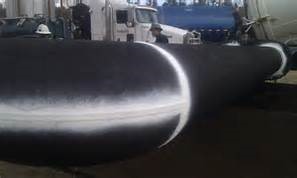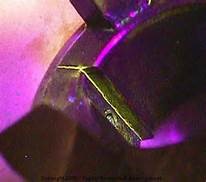Magnetic Particle Inspection
Magnetic Particle Inspection is a non-destructive testing process for detecting surface and slightly subsurface discontinuities in ferromagnetic materials such as iron, nickel, cobalt and some of their alloys.
The presence of a surface or subsurface discontinuity in the material allows the magnetic flux to leak, since air cannot support as much magnetic field per unit volume as metals. Ferrous particles are then applied to the part. The particles may be dry or in a wet suspension. If an area of flux leakage is present, the particles will be attracted to this area. The particles will build up in this area and form what is called an indication, and thus evaluated to determine what it is and what action should be taken.
Magnetic Particle Inspection is most commonly used for inspection on welds, castings, forging, pressure vessels, fittings, shafts, and structural steel.


Limitations
All materials must be clean and free of dirt, grease, thick paint, scale or anything that may mask discontinuities. Inspections can be performed with DC (direct current) which can detect slight sub surface discontinuities or AC (alternating current) which can detect surface discontinuities.